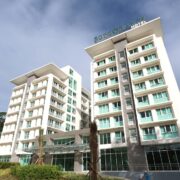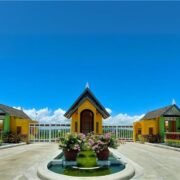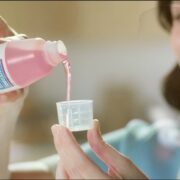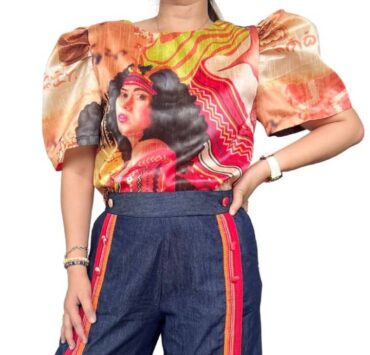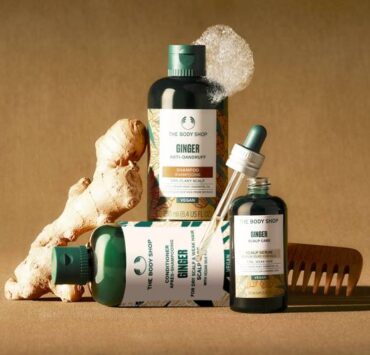Lakat sneakers get the designer treatment
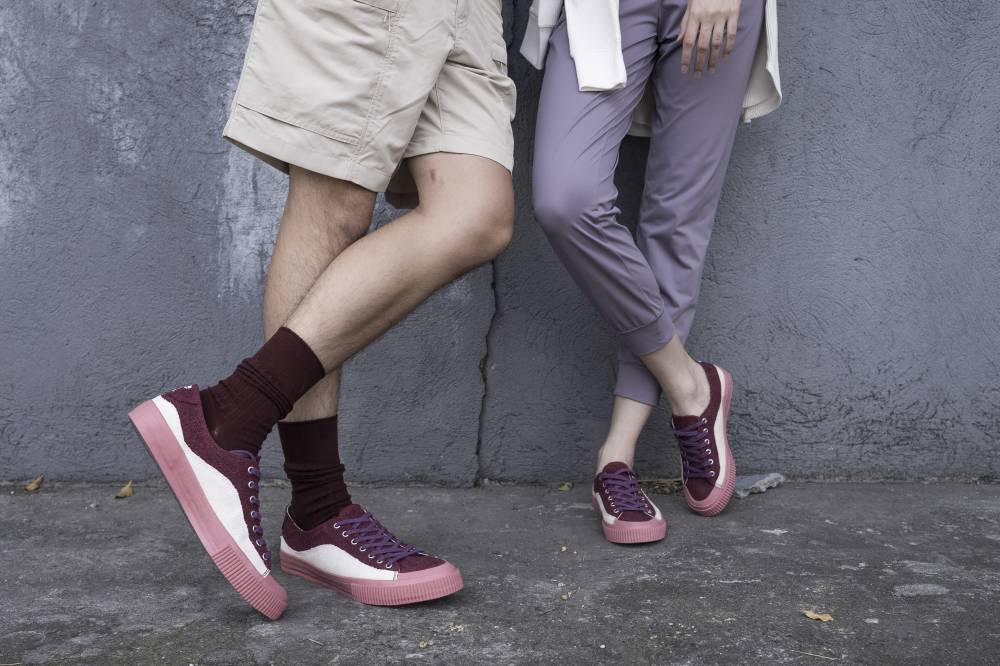
It may have taken a year to finalize and produce, but the Lakat x Nazareno/Lichauco collection that’s finally making its debut at this year’s Artefino (Aug. 22 to Aug. 25 at The Fifth at Rockwell, Makati City) actually made for an easy collaboration.
When Creative Definitions founders Mike and Banj Claparols, makers of Lakat Sustainable Sneakers, were given an opportunity at the Manila Fame last year to work with designers Rita Nazareno and Gabby Lichauco, they instantly jumped on it.
“We respect their design eye and design capability,” said Mike, calling the duo “in a league of their own” when it comes to design.
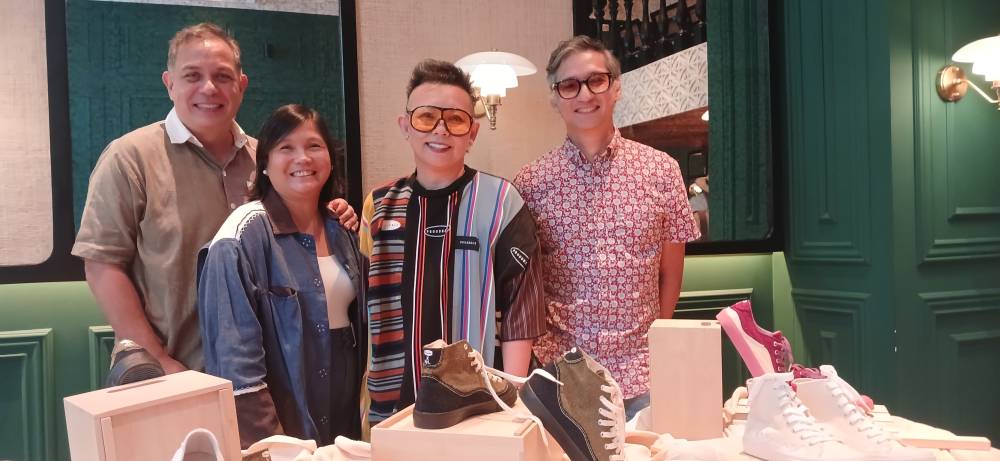
“It was so easy somehow, because their vision and their values were in line with our own,” including innovation with new materials, sustainable practices and openness, he added. Nazareno, one-half of the Nazareno/Lichauco team, thinks the same: “It seems very honest.”
According to her, they love and enjoy Lakat’s strong brand personality, as well as their innovation with materials and techniques.
Nazareno, who owns a pair of blue Lakat sneakers, has been a fan of the local sustainable shoe brand for a long time. “They’re so comfy.”
Lakat has previously collaborated with artists Liliana Manahan, Garapata and Doktor Karayom, but this is the first time the brand has partnered up with designers.
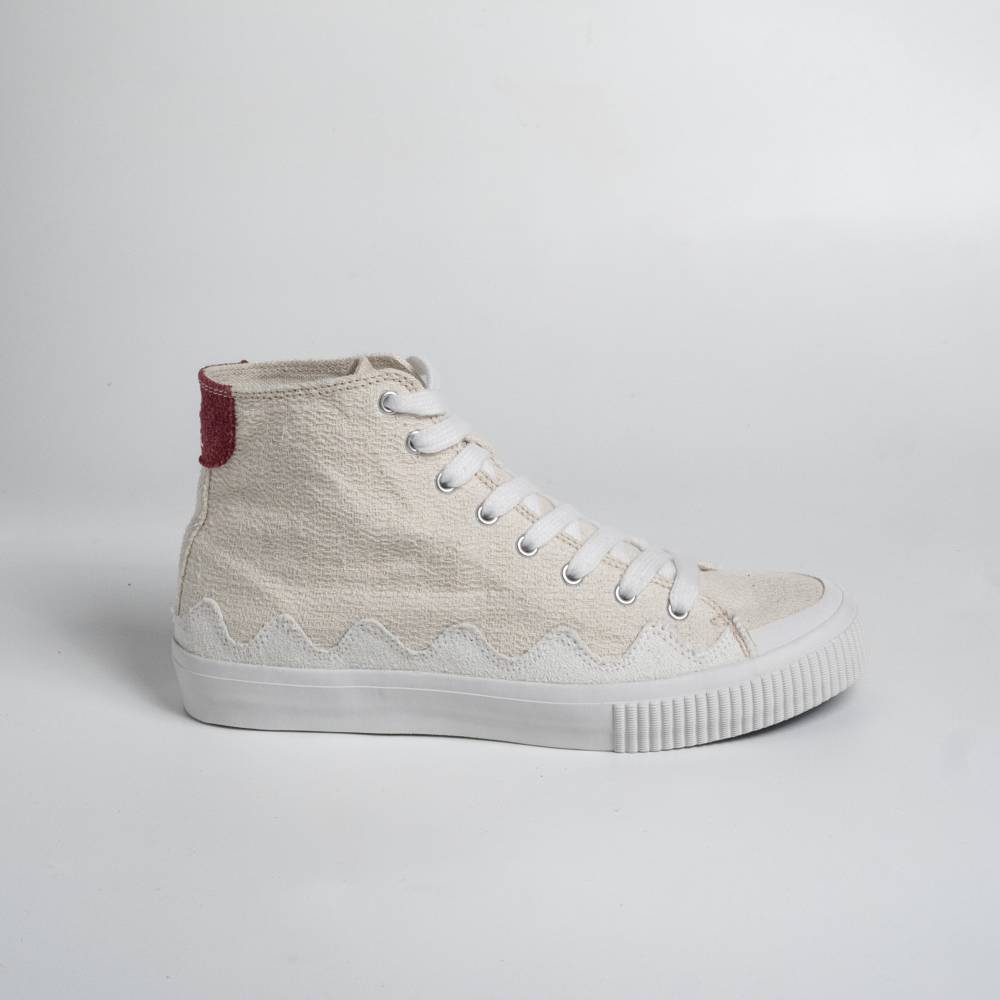
Pineapple fibers
Made of blended Philippine local fabrics that utilize fibers from pineapple leaves usually discarded during harvest, the normally monochrome sneakers get the two-tone treatment this time. Inspired by Nazareno/Lichauco’s yearning to go back to utilitarianism—“a concept that prescribes actions to maximize happiness and well-being”—the design team reconnects with nature amid this postpandemic, digital era.
The wave and ripple motif recalls images of being near water, glamping by a lake or going to the beach. Pineapple actually makes a good fit for these types of activities as it is a good fiber to work with, quite strong and easy to dye. The shoes are also water-repellent.
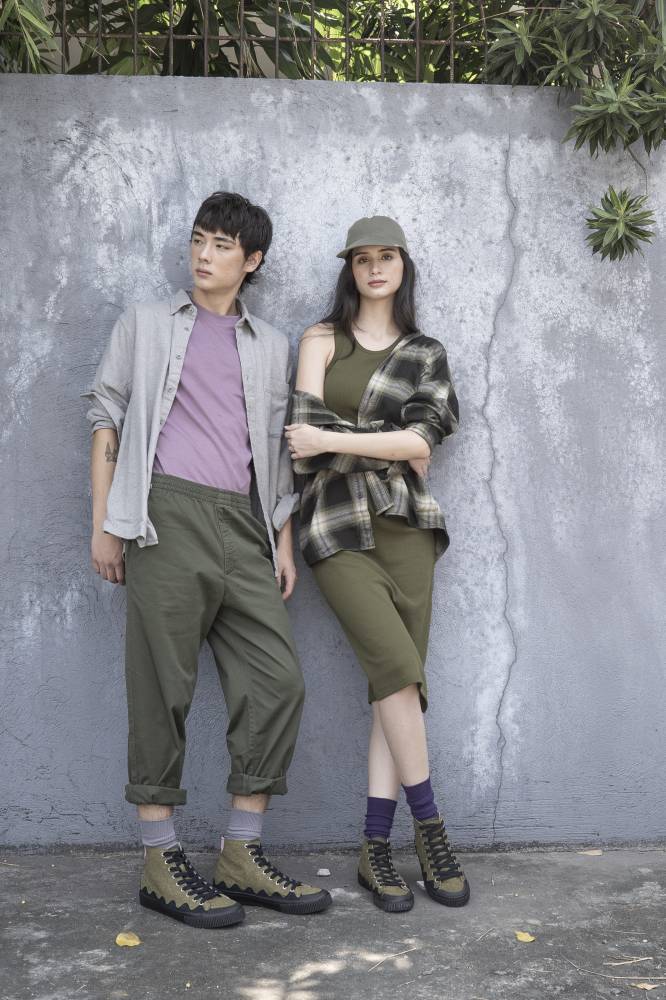
“I don’t look like it, but I actually kind of enjoy glamping,” said Nazareno when asked about the inspiration, subsequently sharing about owning a small plot of land in Joshua Tree National Park in California with some college friends. She said she also enjoys that the androgynous designs can be worn by all genders.
“This is the first time we designed for a certain type of pineapple fiber,” said Nazareno/Lichauco in a statement. “We really wanted to play with colors, contrasts and shapes. Using the azo-free dyes was definitely important, especially since we have to be socially conscious of the objects we design and buy.”
Supporting local communities
For the Claparols, the water theme reflects the Negros-based brand’s environmental protection advocacy. According to Mike, it goes hand-in-hand with their sustainable development goals mindset—including the use of natural materials, the use of azo-free dyes and supporting local communities—in their production. “It jived.”
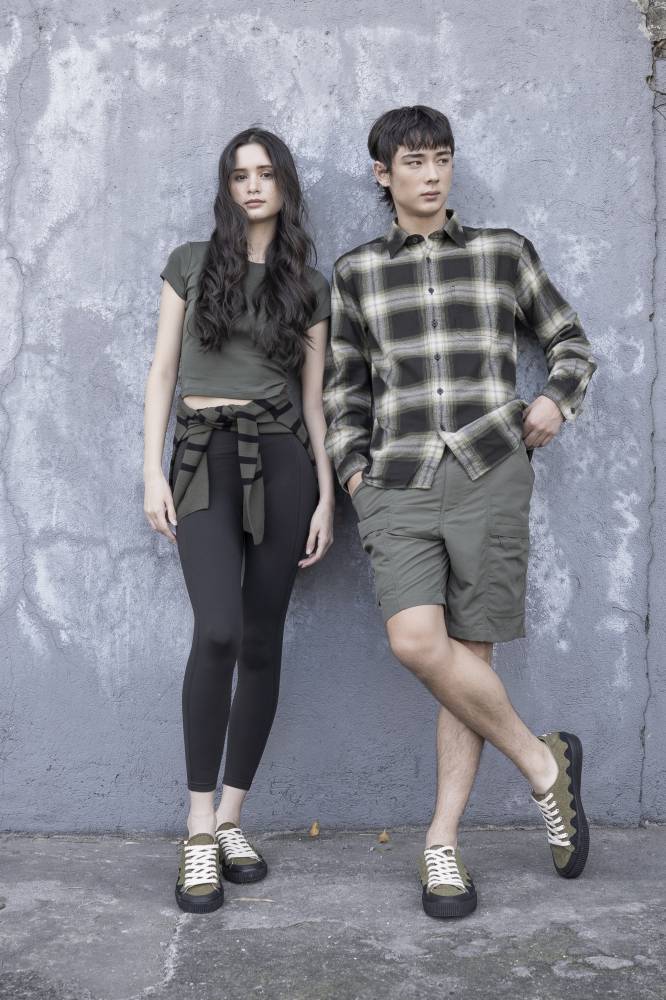
“Hopefully, it will create awareness,” said Banj, referring to the dangers of using polyester. “Any small material that you’re wearing, when you wash it in the washing machine, it gives off microplastics.”
“We’re not only protecting life on land. We’re also now protecting life underwater,” added her husband.
Lakat recently won at the regional Good Design Awards for Object Making—which earned them a nomination to the heavyweight competition in Japan this month—and it was also the only one to receive the Green Award, acknowledging the brand’s embodiment of “the highest level of excellence in the practice of sustainable design.”
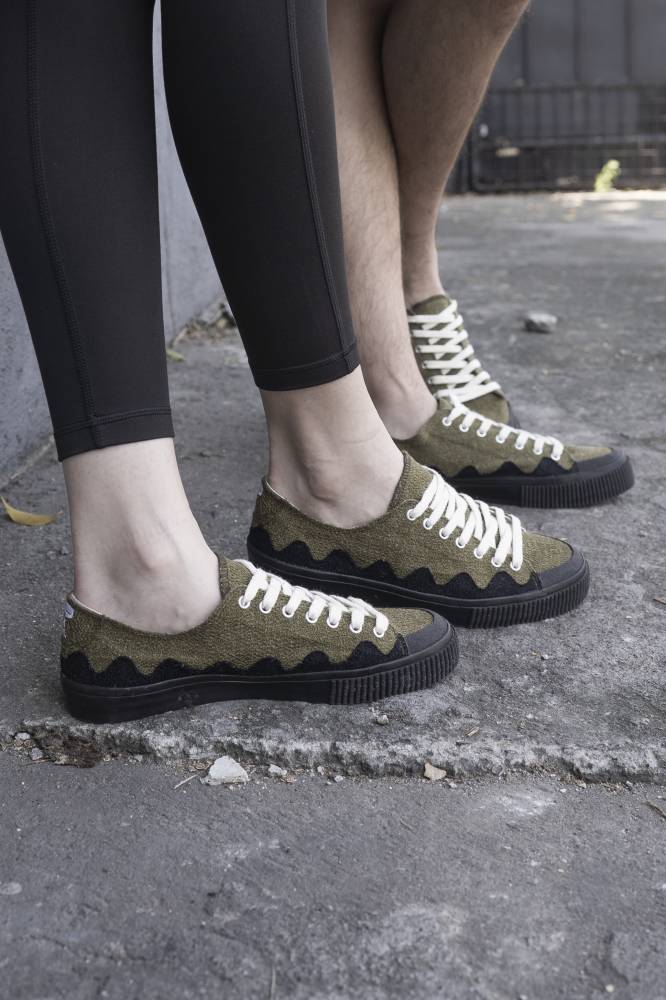
The young streetwear brand has already accomplished so much since it was created in 2021, but more plans are still in the works. Among them is producing 100-percent pineapple fiber instead of its current blended fibers of cotton and pineapple, as well as using other tropical fibers like bananas.
In the future, the Claparols are also looking into producing platform sneakers, smaller sizes for kids and even bags. The couple, however, said that they do not want to go into a new product if the supply chain isn’t ready.
For now, Mike and Banj are looking into upscaling production. But, eventually, the dream is to export.

